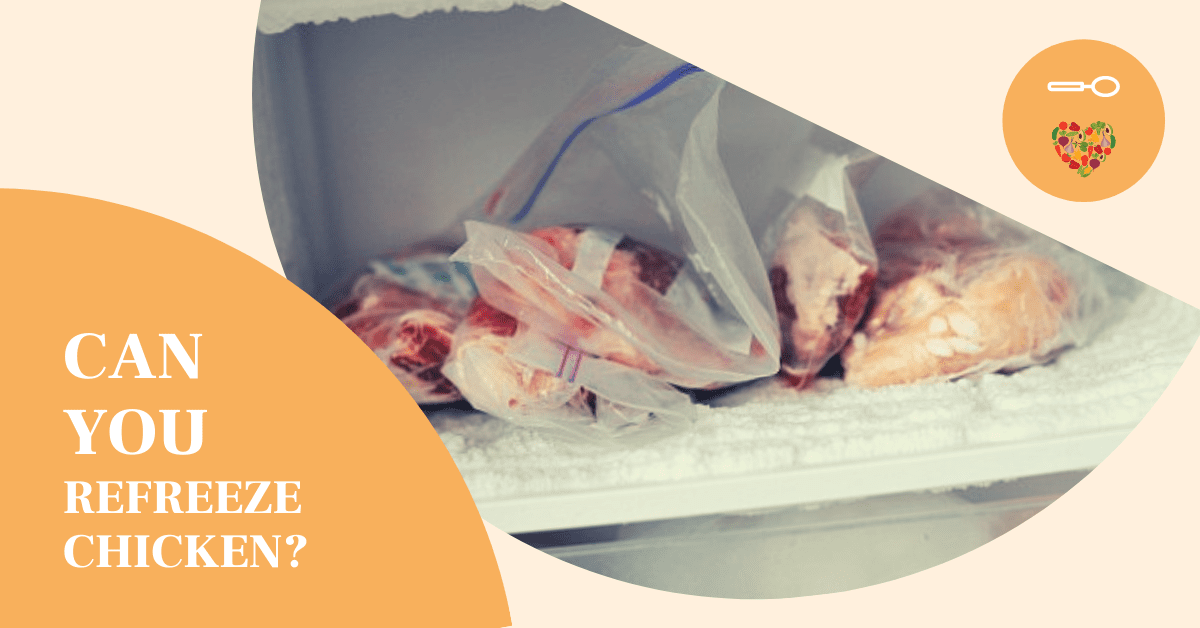Can you Freeze Oranges?

Key Takeaways
1. Oranges can be frozen whole, peeled, sliced, or with peel to preserve freshness and flavor for later use, with a shelf life of 6 months to 1 year in the freezer.
2. Freezing methods vary depending on usage, with options for juicing, garnishing, or snacking, ensuring the original texture and flavor of oranges are maintained.
3. Besides freezing, oranges can be stored in the fridge for up to three weeks, or preserved through dehydration and canning for longer shelf life.
4. Defrosting frozen oranges depends on their intended use, with whole fruits thawing overnight in the fridge, and orange juice cubes used directly in smoothies or thawed in the microwave.
Oranges are the most famous fruit throughout the world. These are readily available, and everyone loves them.
They are the most liked fruit and used in many ways to make different drinks and food. It can be stocked up for later use.
Oranges are full of nutrients and are bursting in flavour.
All the citrus fruits are packed with Vitamin C, antioxidants, and folate to protect against cell damage.
The question arises in our minds: how do we keep our oranges fresh and pleasant before using them. Can you freeze oranges? Yes, we can freeze the oranges to keep them fresh and preserve them for later use.
Depending on the usage of oranges, there are several different methods to freeze oranges. They can be frozen either peeled, sliced, unpeeled, or whole.
You can store the oranges for almost six months- 1 year in the refrigerator.
In this article, we will provide full guidance on how to freeze oranges. So stay with me.
How I Prepare and Freeze Oranges
- Peel the oranges and remove the white pith as much as possible
- Let each orange divide into quarters.
- Place the quarters in sealed freezer bags, remove as much air as possible and get the bag sealed.
- The bags are placed in the freezer till required.
- When the oranges are ready to use, the desired orange segments are removed from the freezer and defrost at the average temperature.
- Each quarter is divided into segments and used as required.
Guidelines to freeze oranges
As per most people, oranges are available at any time of the year; however, this is not true in a real case. Just like other fruits, oranges too have a peak season.
Oranges are harvested primarily in the winter season (start of Oct- middle of June).
Many oranges grown and available in the market are different in size, shape, and colour of the flesh. Some types have a prominent red colour, while some are orange in colour.
Another essential factor is fruit maturity that will affect the longevity and taste of the orange.
One of the easiest and most popular methods of preservation is freezing.
We have good news and bad news related to freezing the oranges.
- The good news is that oranges can be frozen and used in many ways.
- All types of oranges can’t be frozen well, and the quality also gets affected after defrosting.
Freezing Oranges
Freezing oranges is very easy, and it is the best way to ensure quality. The shelf life of frozen oranges ranges from 6 months to 1 year.
Many options are available to freeze oranges, like freezing oranges in sliced form or as a whole orange. You can also remove the peel of the oranges or leave it.
Before proceeding further, you must be well aware of all the information regarding different freezing methods.
The method chosen should have all the things needed to carry on the procedure.
How to Freeze Oranges Whole
If your primary use is the extraction of juice later, freezing the whole oranges is a great option. It harms the texture of the fruit, and after it will make this process of extraction easier.

If you like juice or a regular smoothie, then this method is the perfect one.
Follow the following steps if freezing the whole oranges.
- The oranges are selected wisely. The freshest and ripest orange works best for this method.
- They must be in a freezer zip lock bag. Pack tightly without any hesitation and refrigerate.
- The vacuum environment is created by squeezing as much air as possible and seal it.
- The oranges must be refrigerated.
- The frozen whole oranges have a shelf life of more than six months.
How to Freeze Unpeeled Orange Slices
Another method to freeze orange is to leave the peel on them. This method requires more time and skill as compared to the previous process.
These oranges slices are good for garnishing cocktails and drinks. If you like drinks and arranging some cocktail parties, then this method should be known to you.

Follow the steps mentioned below.
- Prepare the oranges by cutting or slicing them into semi-circles or rings, whatever you like. The skin should be intact.
- On a baking sheet, put these slices and ensure that all the pieces are away from each other. Allow them to freeze for almost 4 hours.
- Take the frozen orange slices out of the freezer and store them in a freezer-safe bag.
- Place the bag in the freezer.
- By using this method, the oranges will last for 10-12 months.
How to freeze peeled and cut oranges
This method of freezing is perfect if you want oranges as a quick snack. It removes the tiresome process of cutting and peeling as you enjoy the oranges and all the procedure is done before time.
This method also maintains the original texture and flavour of oranges.
The steps of freezing cut and peeled oranges are
- The oranges are peeled and remove the white residue.
- The oranges are cut into bite-size pieces.
- Place them in sealable freezer bags.
- Remove the excess air out of the bag.
- Freeze them in the freezer.
- The oranges will stay good for 10-12 months by using this method.
How to freeze oranges with peel
If you want to keep the peel intact, then this method is useful. There are many other examples where we use orange peels.
Below are the steps for freezing oranges with the peel.
- Cut the oranges into segments, be careful about the peel.
- Place them in the freezer-safe bag.
- Excess air is removed and sealed in a freezer-safe bag.
- Store the oranges in the freezer.
It is a detailed guide related to freezing oranges. The method is of freezing depends upon the usage of oranges.
Just follow the instructions mentioned above.
How to store oranges for long term
Other than freezing, there are many methods to store oranges. Below are some of the preservation techniques available. For storing oranges in the fridge, use dehydration and canning methods.
How long do oranges last in the fridge?
Temperature plays a vital role in increasing the storage life of oranges. It works for most kinds of food and all kinds of fruit.
However, if the oranges are in the fruit basket at room temperature, they will probably have one week’s shelf life.
- The change in the appearance of orange will occur if you keep them longer than a week.
- The orange will begin to wilt.
- Mainly the flavour will change as the sweetness will get affected.
To extend the shelf life of oranges and delay their senescence, all you can do is refrigerate the oranges.
If correctly done, the oranges can last for three weeks.
Steps of refrigeration:
Follow the following steps for refrigeration of oranges.
- Put the oranges are in the freezer bag.
- They must be placed in a specific section of your refrigerator.
- Every section of the fridge is specified for a particular purpose, so store fruits properly.
- The oranges are kept in the fridge and taken out when needed.
- Any undue fluctuations will be prevented in orange’s internal temperature.
- The fridge can increase the shelf life of oranges but if you want to store them for the long term, think about freezing them.
Dehydrating Oranges

- As described by the name, this method uses an oven to dry out slices of orange fruit.
- The process does not take long and straightforward.
- Do the process correctly; the dehydrated oranges can have a shelf life of 2 years.
Steps of dehydrating oranges:
The steps of dehydrating oranges are
- Preheat the oven to 200 degrees.
- The oranges are sliced and laid on a baking sheet in a single layer.
- Cook them for almost 2.5 hours.
Use these dehydrated oranges in many ways. For example, the dehydrated oranges are for garnishing on a cocktail or cheese board.
Canning Oranges
The steps of canning are:
Canning means putting oranges without cooking them into glass jars. This procedure in the canning industry is known as “raw packing.”

- The oranges are peeled.
- The oranges are packed tightly in a canning jar, leaving ½ an inch at the top.
- On top of the fruits, boiling sugar syrup is poured down.
- Seal the jar.
- Proper canning leads to an increase in the shelf life of oranges from 18 months to 2 years.
- Canning and dehydration both need a lot of skill and precision to perform this process correctly.
- Some additional equipment may also be required to perform this task.
- Freezing is the easiest and quickest way to increase the shelf life of oranges.
Can you Freeze Fresh Citrus Juice?
Yes, the orange juice can be frozen in ice cube trays. The trays are mostly one tablespoon or two tablespoons per cube. After freezing the trays, move the cubes to a freezer-safe container. Label it for further usage.
Tips for freezing citrus
- Freeze the product if you don’t have a plan to use it soon.
- Label the date and content.
- Store the fruit in a visible place in the freezer.
How do you defrost oranges?
Defrosting depends on how to use the oranges and how you have frozen them. The whole fruit is left in a large bowl to thaw overnight in the fridge.
Thaw the juice can be using the microwave if you prefer liquid form or if used for smoothies can be used instantly.
Nutritional Value of oranges
Oranges are considered one of the nutritional and healthy food worldwide and help provide long-term health advantages.
| Mineral/ Nutrient | Amount |
| Cholesterol | 0 mg |
| Total fat | 0.1 mg |
| potassium | 181 mg |
| sodium | 0 mg |
| Dietary fiber | 2.4 g |
| Vitamin A | 4 % of RDI |
| Sugar | 9 g |
| Total carbohydrate | 12 g |
| Protein | 0.9 g |
| Vitamin B-6 | 5 % of RDI |
| Calcium | 4 % of RDI |
| Vitamin C | 88% of RDI |
| Magnesium | 2 % of RDI |
*RDI = Recommended Daily Intake
As seen in the table, oranges are very healthy fruit. They are full of all types of minerals and nutrients that help protect the body against various diseases.
Some of the health benefits of oranges are listed down.
- Excellent source of Vitamin C
- Maintains the immune system
- Colds and infections are cured by Vitamin C intake.
- Reduction in the risk of colon cancer
- Reduces the risk of heart diseases
- Blood sugar level regulation
- Maintenance of healthy skin
- Improve eyesight
- Contains anti-carcinogenic compounds
- Bowel movement regulation
Citrus Freezing Considerations:
- Use canning or freezer jars as the glass can tolerate temperature fluctuations.
- Because of the high concentration of limonene, navel oranges become bitter when frozen.
- According to studies, oranges and lemons can be stored for 4-6 months in the freezer.
- Avoid unpasteurized juices like raw juices, including orange juice, which are a carrier of food-borne illnesses.
Conclusion:
This article concludes that freezing oranges increase their shelf life and preserve convenient parts of oranges for recipes and drinks, and money-saving. Must store oranges appropriately to save their quality and make the oranges easy to use.
Frequently Asked Questions
1. Should oranges be picked before a freeze?
Pick The ripe fruits from citrus trees before the significant freeze. It takes 20s mid- low for 5- 10 hrs. to freeze the fruit.
2. How long can you keep oranges in the freezer?
If stored properly, they can maintain their quality for 10 – 12 months; however, they can be safe even after that time.
3. Can oranges make you sick?
Oranges are good for you. However, it would help if you ate them within a limit as extreme of everything is harmful. Consuming oranges in high amounts will increase the fiber content, affecting digestion, abdominal cramps, and diarrhea.



